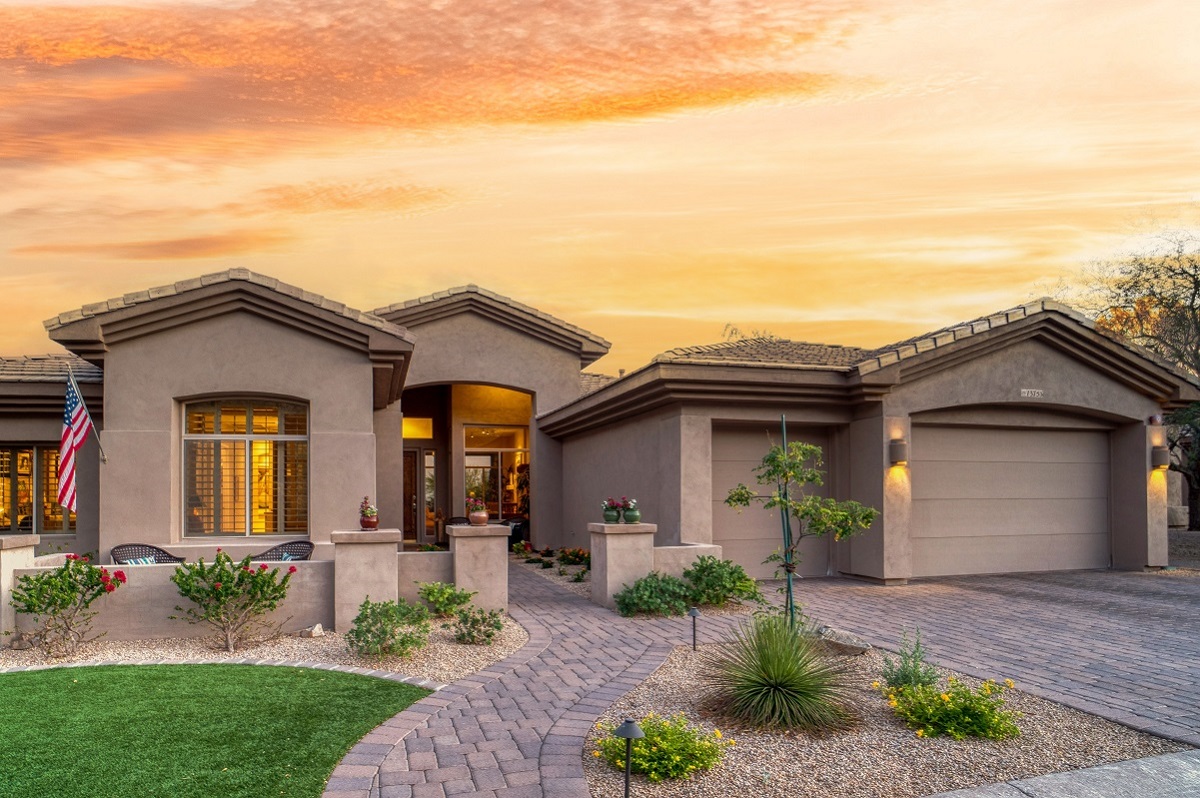


Explore the pros and cons of renting versus buying in Dallas. Get expert advice to make the best decision for your housing needs.

To buy or not to buy wasn’t Hamlet’s famous question, but it’s a big decision to ponder if you’ve been running budget numbers alongside “rent vs. buy Dallas” searches. Living in the Big D puts you in good company, with a population of over 1.3 million residents spread across thousands of homes and apartments. While not as concentrated as New York City, housing costs in the Dallas area have been increasing due to high demand, increasing the property value of homes.
Among those residences, the rent/own split is fairly balanced at 58% renters and 42% homeowners, with a wider divide in some neighborhoods. Deciding whether to set up your household on the rent or buy side of the Dallas housing chart depends on a lot of factors—here’s what you need to know about costs, market conditions, and more to help you choose.
Dallas is a major city on the rise, and job growth has averaged 6% annually over the past five years across the Dallas-Fort Worth (DFW) area, helping drive that boom.
For single-family homes in Dallas, the average sales price is $513,563, and the median price is $411,695, which almost exactly equals the $412,100 national median. Sales volume, however, isn’t following the nation’s slight year-over-year drop—instead, Dallas has seen a rise of 8.38% to 8,069 closed transactions.
The combination of rising inventory and high interest rates means that Dallas is shifting slightly from a seller’s toward a buyer’s market, but there’s opportunity on both sides of the transaction.
From a studio apartment to a whole house, renting gives you options with the potential for a wider range of square footage, utility costs, and monthly payments. Whether renting offers you better options likely comes down to three important factors.
Job offer, new love, travel bug—whatever the reason, renting allows you to pack up and hit the road within weeks or months without significantly upsetting your financial picture.
Renting can also help you get to know a new area by living in a few different neighborhoods before committing to a home purchase. It also provides more options to live near a workplace or favorite neighborhood while avoiding HOA fees and mortgage interest.
You’ll need less cash in hand to rent than buy. Renting in Dallas typically requires:
Accordingly, a renter with one pet and a $1,242 monthly rate (the median rate on a Dallas one-bedroom apartment) will need an average of $3,220 in addition to the first month’s rent, $2,639 of which may be refundable.
Comparatively, buying a home in Dallas at the median price of $411,695 requires $6,175 in closing costs plus a down payment of $50,227 (based on Bankrate’s published averages for Texas of 1.5% for closing costs and 12.2% for down payments).
Repairs, maintenance, remodeling—the absence of a never-ending to-do list is a big perk to rental life. For many renters, taking care of these issues involves a phone call to the landlord rather than their own time and expense:
Dallas is a solid city to invest in. It has long-term positive property appreciation, a vibrant arts and entertainment scene, and growth in population and job opportunities. If you’re in it for the long haul, consider the three primary benefits of buying a home in Dallas.
Home equity is the sum of what you own of your house at a given point in time compared to your mortgage lender. You can figure it out by subtracting your principal balance from the current market value of your home. Your equity, expressed either as a dollar amount or percentage of total value, will grow over time as:
Over the past decade, Dallas homes have appreciated in value by 121.62%, an average of 8.28% annually. This consistent performance places the city within the top 20% of the nation for real estate growth. Explore how to build equity in a home to further increase your investment.
The rate has slowed over the past few years, but forecasts predict continuing moderate growth that bodes well for long-term investments. In short, if you plan to stay for several years (or decades), then you can expect your home to grow in value and potentially sell at a profit in the future.
Prior to a home sale, you could leverage your accrued home equity as collateral for relatively low loan or line of credit rates to fund investments, education, renovations, and other endeavors.
If you opt for a fixed-rate mortgage, then your monthly payment amount is locked in place for the next 15 to 30 years. Compared to anticipating a potential rent increase every time your lease is renewed (typically each year), a fixed-rate mortgage helps reduce stress and enables better financial planning.
Moreover, making regular mortgage payments slowly builds your home investment over time, increasing the potential for profit when you sell your home in the future. For many families, buying a home is a stable, slow-growing component of their overall wealth-building plan.
Good luck choosing your favorite colors, textures, or even hanging pictures in a rental unit. You’ll typically be restricted to temporary decor measures that can be reversed with no trace before you can move out.
Buying allows you to rip out, tear down, rebuild, repaint, and customize your home in every way to fit your unique taste and your family’s needs. This could range from splitting a large bedroom into two for surprise twins to modifying your home for mobility and fall prevention in later years. If you’re building a home in Dallas, make sure you have all of the permits before getting started.
Cost is a starting point for most people when making a buy-vs.-rent decision, but it’s not always a clear-cut answer when considering immediate resources and long-term payoff.
Looking beyond the upfront costs explored above, let’s consider monthly payments to compare how renting and buying would each fit into your ongoing budget.
Rent in Dallas is down 2.7% year-over-year and is currently slightly below the national average. Median rent prices in Dallas are:
As of mid-June 2024, the nationwide average for the most common mortgage type, a 30-year fixed-rate loan, is 6.95%. At that rate, homeowner monthly payments would be:
To estimate your mortgage payment, use an online mortgage calculator that crunches your credit score, home price, location, down payment amount, and loan rate and terms.
Per the 2022 American Community Survey, the median monthly home cost in Dallas (mortgage plus everything below) totals $2,228 for homeowners. In addition to your principal-plus-interest mortgage payment, you’ll need to cover:
Renters, on the other hand, have a lot less to cover on top of their lease payment:
If you’re buying in Dallas for the first time, or if you’re a veteran buying a home in Dallas, you can apply to the My First Texas Home program. Participants can receive:
City-based assistance includes no-interest, forgivable loans which are deferred (no monthly payments) through:
If you’re a current homeowner planning to sell before you make the rent-or-buy decision for your next home, have you considered a sell and stay transaction?
Unlike a traditional listing sale, Truehold's sell and stay transaction lets you skip the process of home repairs and staging and sell on your timetable. Instead of coordinating your sale with an immediate move, however, a Dallas sell and stay transaction allows you to remain in your home as a renter. This way, you can take the time that you need to make a decision on your next move.
In the meantime, you’re relieved of the cost and hassle of essential repairs, property tax, and property insurance.
If a sell and stay transaction sounds like the right solution for you, call (314) 353-9757. One of our representatives will connect with you to discuss the process and answer your questions, so you can focus on finding that new Dallas residence.
Sources:
Chat with a real person & get an offer for your home within 48 hours.
Call (314) 353-9757